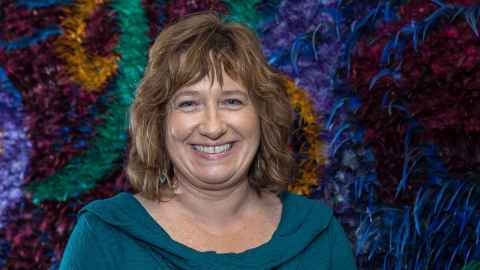Multi-million dollar grant to research vaccines and disease
26 July 2018
For decades vaccines have saved millions of people from diseases that once ravaged society. But how much more can we learn about them and how can we improve the vaccines we have now?

For decades vaccines have saved millions of people from diseases that once ravaged society. But how much more can we learn about them and how can we improve the vaccines we have now?
The University of Auckland is about to invest a multi-million dollar grant into the field so vaccinologist Dr Helen Petousis–Harris can study those very questions.
Dr Petousis-Harris has been awarded a five-year Dean’s Fellowship by the Faculty of Medical and Health Sciences to research some of our most infectious diseases and the vaccines that help prevent them.Dr Petousis-Harris is a vaccinologist on the Faculty’s School of Population Health and a Senior Lecturer in the Department of General Practice and Primary Health Care. She is also the Director of Research at the Immunisation Advisory Centre and is world-renowned for her 20-years of work in immunisation-related research in New Zealand including clinical, social science, epidemiological and health systems. Her main research areas are vaccine safety and vaccine effectiveness.
She calls it her passion, drawn from an extensive background in biological sciences followed by practical experience in population health.
“I have developed a passion for the science of vaccines and vaccination. After early work on the social aspects of vaccination I learned that two of the key challenges to good immunisation policy and high public confidence in vaccine programmes centred on the perceived effectiveness and safety of vaccines, coupled with the art of communication,” she says.
Epidemiology can both answer and raise questions about vaccine effect and safety
She plans to use the five-year grant to build on a series of studies into vaccines. One will involve exploring how the NZ meningococcal B vaccine MeNZB was able to protect against gonorrhoea, now a super bug infection.
Another involves investigating how we can better use whooping cough vaccines to protect our most vulnerable members of the population, our youngest infants.
Other work will address New Zealand-specific questions that arise around the use of vaccines.
“Epidemiology can both answer and raise questions about vaccine effect and safety,” she says.
“To be awarded this grant is a huge honour and I look forward to being able to develop this work.”
Faculty Dean, Professor John Fraser, says the faculty received a large number of applications that had to be shortlisted to five by a panel of senior academics representing the faculty’s major research areas.
“Those five were interviewed and the panel’s final decision was based on the overall “impressive” factor of each of the applicants and how applicants were able to excite and convince the panel about the importance of their proposed research and career plans.
“The panel were unanimous in their support of Dr Petousis-Harris as given her past success we know she will become a genuinely productive and independent research academic over the five-year period on the funding. I wish her all the best in what I know will be a challenging but exciting five-years.”
Dr Petousis-Harris’ academic record so far makes impressive reading. Some of the main highlights include how in 2015-16 she led a study to evaluate the effectiveness of the MeNZB vaccine against gonorrhoea, a disease that has evaded efforts to find an effective vaccine for over a century. The findings were published in The Lancet in 2017 where it earned the Editor’s Choice and invited commentary, including a PodCast. The paper has been described as seminal, receiving wide recognition by the international media.
Her activities in vaccine safety include being a member of the 14-member WHO Global Advisory Committee on Vaccine Safety (GACVS), convening twice a year in Geneva. In 2018 she was elected to the 10-member International Brighton Collaboration Science Board. The Collaboration aims to enhance the science of vaccine research.
Media queries
Anna Kellett | Senior Media Adviser
Tel: 09 923 9336
Mob: 027 838 9202
Email: anna.kellett@auckland.ac.nz